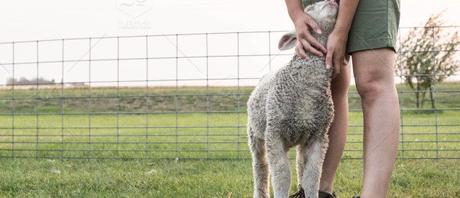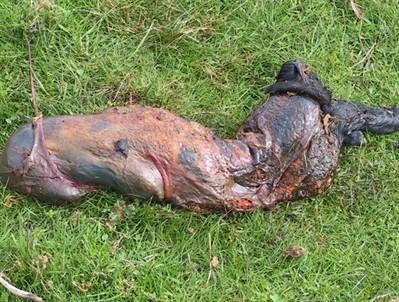
As a livestock farmer, lambing season as you know accounts for a large percentage of your turnover; Ensuring this runs smoothly is part of the secret to lambing success.
Fallen stock is an unfortunate, but inevitable part of farming sheep. Reasons for lamb mortality include starvation, birthing trauma, predation, exposure, infectious disease, rejection, and other challenges facing a new born lamb.
Bio-security has become one of (if not the most) important factor during the busy time of year. Reducing the number of external vehicles simply passing through your land by handling your fallen stock on-site reduces this risk dramatically.
Bio-security intro: http://www.nadis.org.uk/bulletins/biosecurity-on-sheep-farms.aspx
DEFRA provide this: https://www.gov.uk/guidance/fallen-stock
DAERA have published: https://www.daera-ni.gov.uk/articles/fallen-stock-guidance
Incineration is seen as the preferred method of sheep carcass disposal - it is still the most effective, bio-secure and efficient method around and is used by hundreds of farmers around the world.
When is lambing season?
Lambing season in the UK is generally seen as anytime between January and April - and the time our sheep farmers have to handle the birth of more than 15 million ewes!
How should I dispose of Fallen Stock?
All animal fallen stock must be collected, identified and transported (or destroyed) without 'undue delay' as per the guidelines set out in Article 21 of the EU Control Regulation. Incineration is the cleanest and most bio-secure option available at this time according to DEFRA, DAERA and the EU. Adhering to these guidelines will benefit you and also protect neighbouring farms as well.
Additionally there is a not for profit scheme in the UK called ' National Fallen Stock Scheme ' but this can be intermittent in remote areas at best and if you have high volumes it may well become unviable.
Why is on-farm burial banned?
The burial ban has been in place since 2003 in all European Union Member states. It was done to protect the health of human and animals as well as to safeguard the environment. The main risk associated with this is groundwater pollution due to leaching of gas and fluids.

 Why should I incinerate fallen stock?
Why should I incinerate fallen stock?


One thing that will increase disease and infection is the storing of carcasses for any extended period of time. This attracts vermin and insects which will multiply if left. Simply incinerating the carcasses on the same day will reduce any potential of infection almost completely.
Disposing safely of fallen stock is just one benefit of owning your own incinerator. Many successful farmers in the UK and overseas currently run one of our incinerators and have successfully reduced their landfill costs by destroying much of their own waste.
On top of this, you can even use the heat generated from burning your waste to heat your lambing sheds, stables or other farm buildings. It can also be converted into hot water (or electricity*) with some additional equipment.
Why choose Inciner8?
Our innovative combustion chamber design and construction lends itself to the contained processing of fallen stock. Many competitor's systems struggle to cope with the high moisture content of fallen stock and you may experience leakages through the refractory seams or brick joints. Our custom cast refractories have no joints or gaps where a leakage could occur ensuring everything is kept and combusted thoroughly.
All our animal incinerators are DEFRA approved and comply with EU Animal By-Products Regulation (ABPR), (EC) No 142/2011.
To find out how we can help reduce your waste disposal costs, contact one of our experienced team today. Leasing and finance options available.

